How Consumers Decide II
The decoy effect
| Car | Ride Quality | MPG |
| A | 83 | 24 |
| B | 73 | 33 |
The decoy effect
| Car | Ride Quality | MPG |
| A | 83 | 24 |
| B | 73 | 33 |
| C | 70 | 33 |
Asymmetric dominance
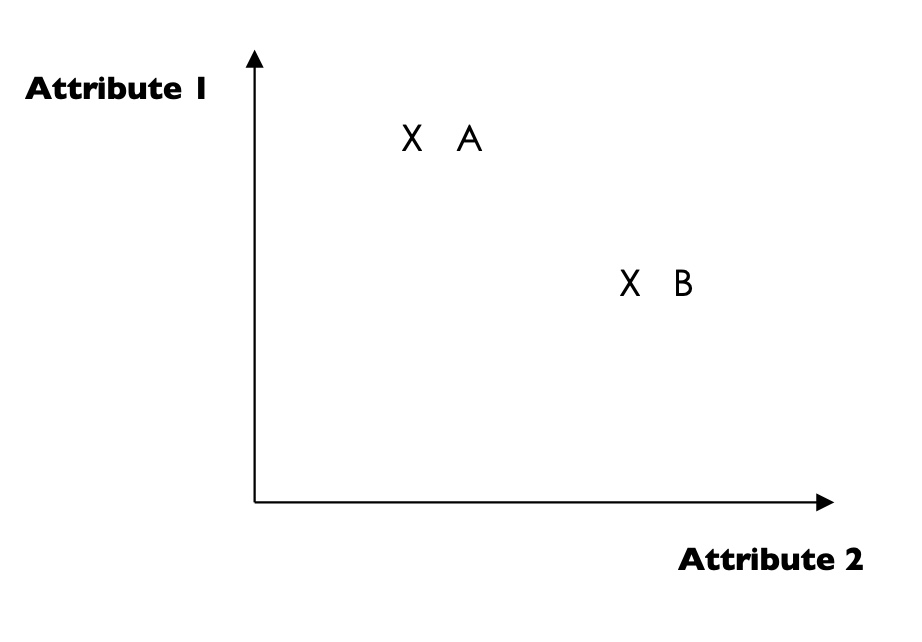
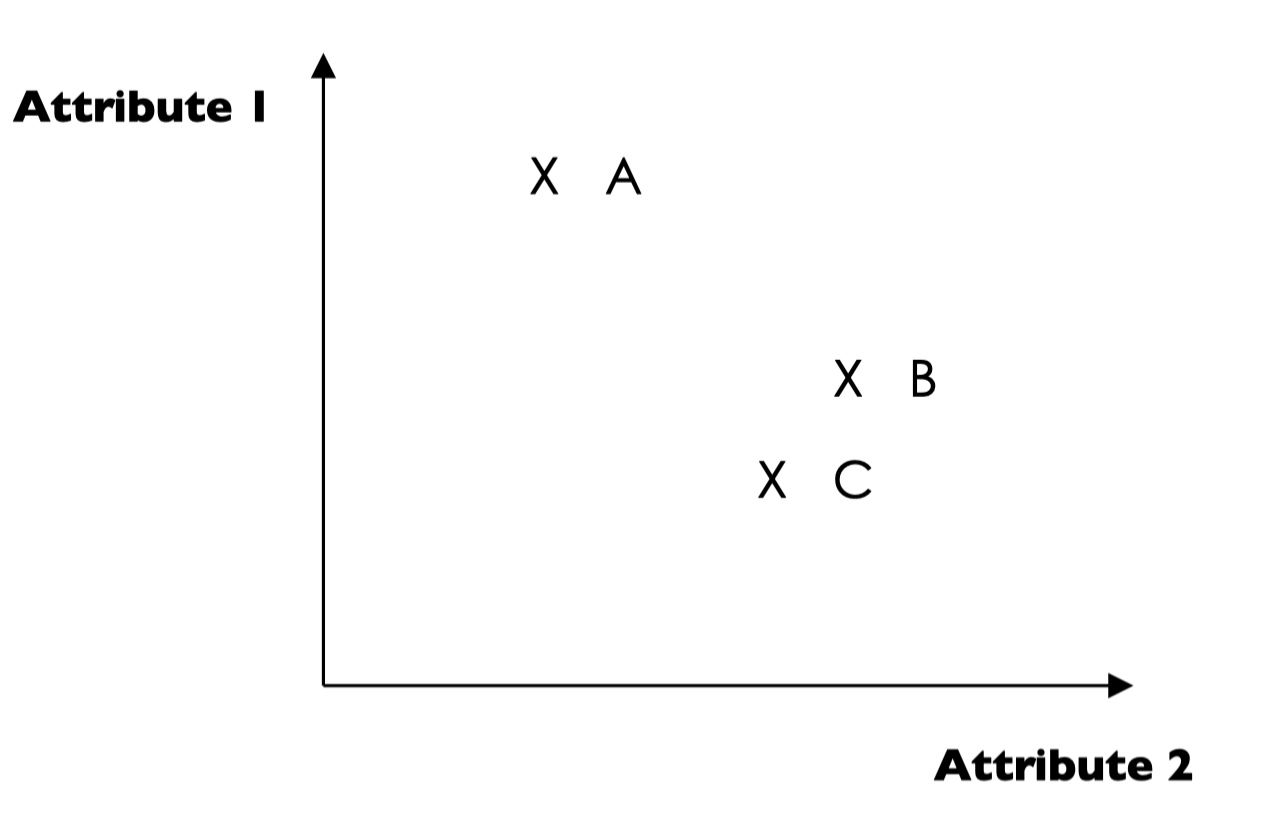
Adding Adding an asymmetrically dominated option to the choice set shifts the choice preferences in favor of the dominating option
The decoy effect
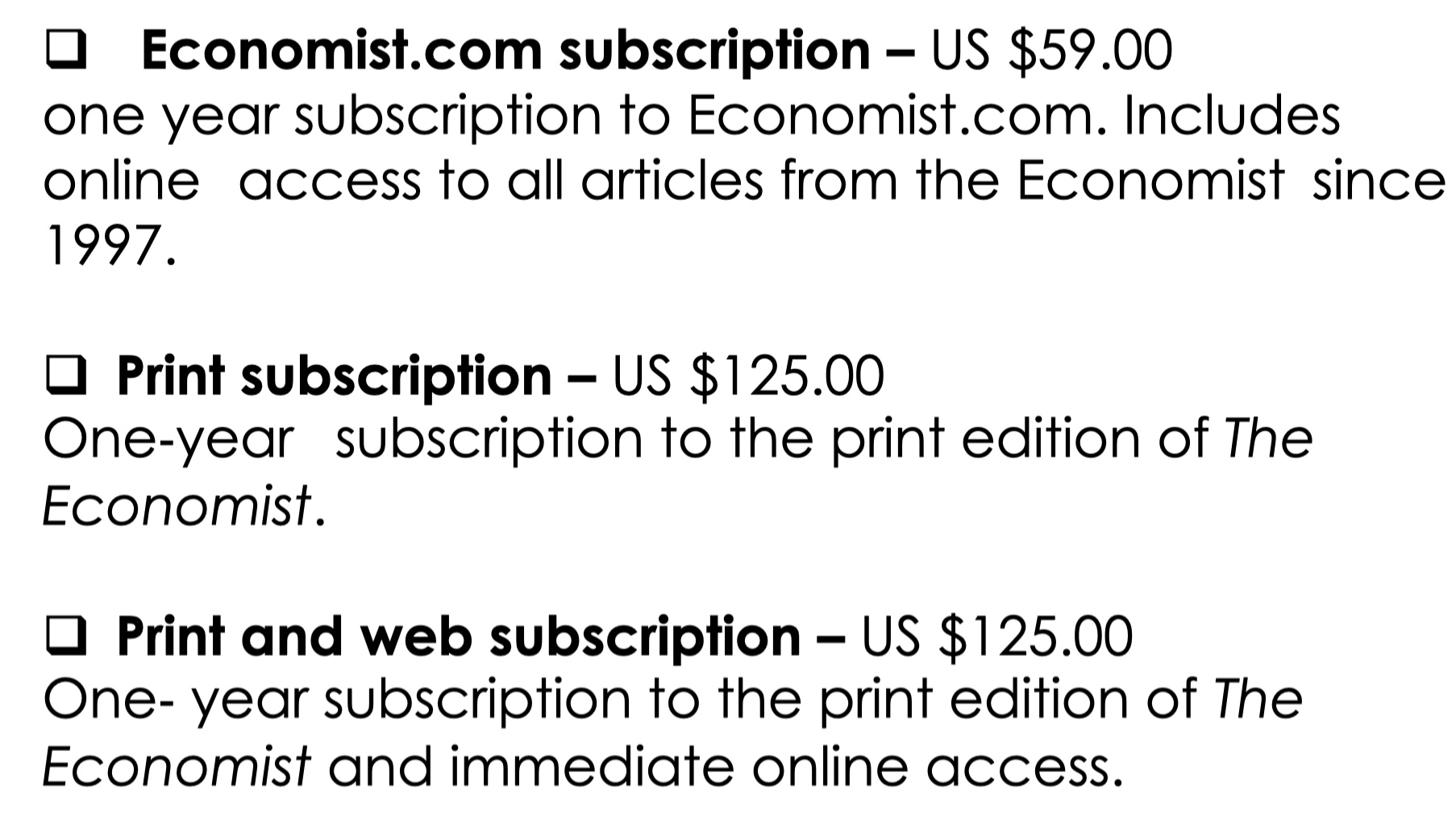
16% 0% 84%
The decoy effect
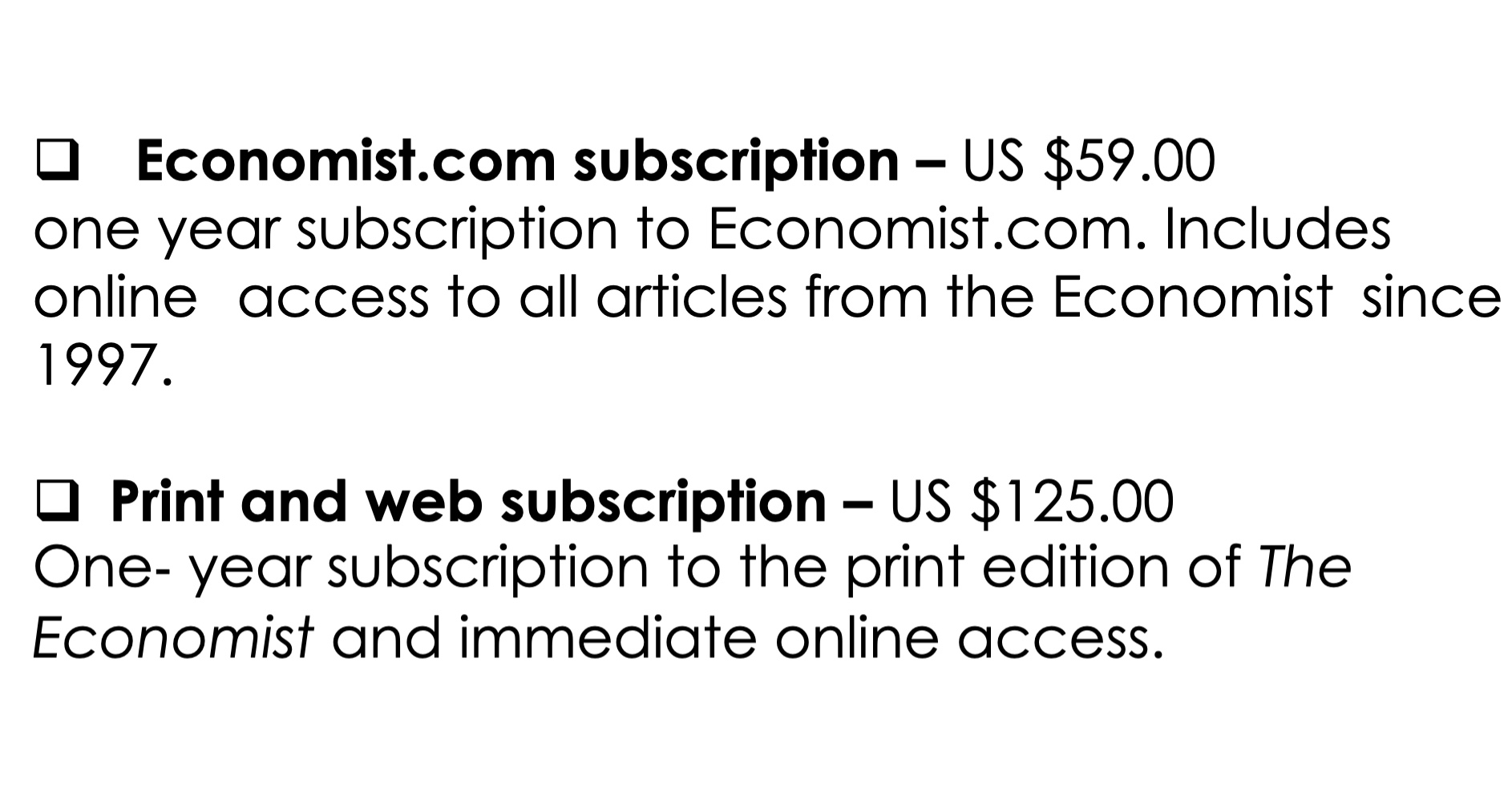
68% 32%
The compromise effect
| Car | Ride Quality | MPG |
| A | 83 | 24 |
| B | 73 | 33 |
The compromise effect
| Car | Ride Quality | MPG |
| A | 83 | 24 |
| B | 73 | 33 |
| C | 93 | 18 |
The compromise effect

The compromise effect
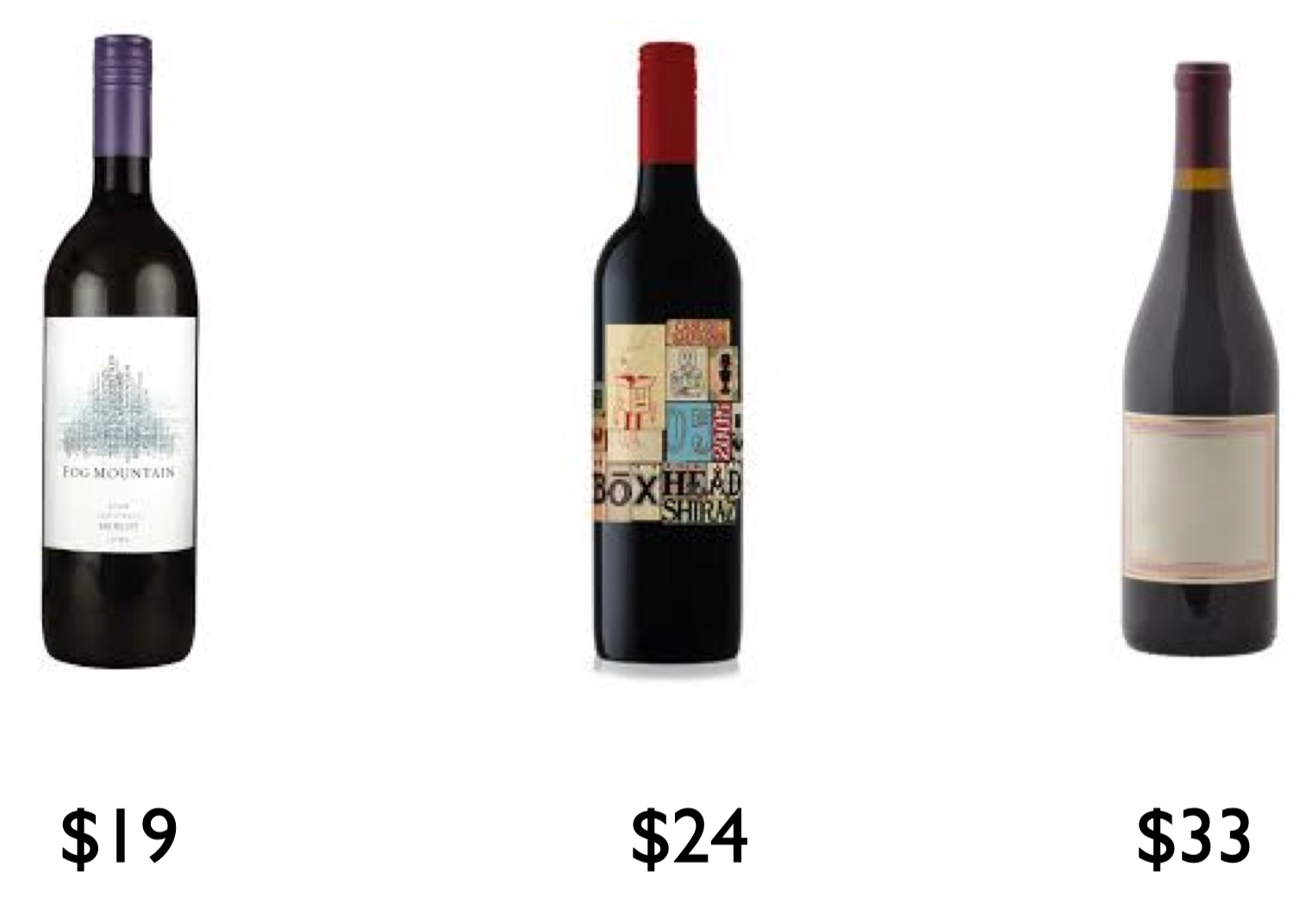
The compromise effect
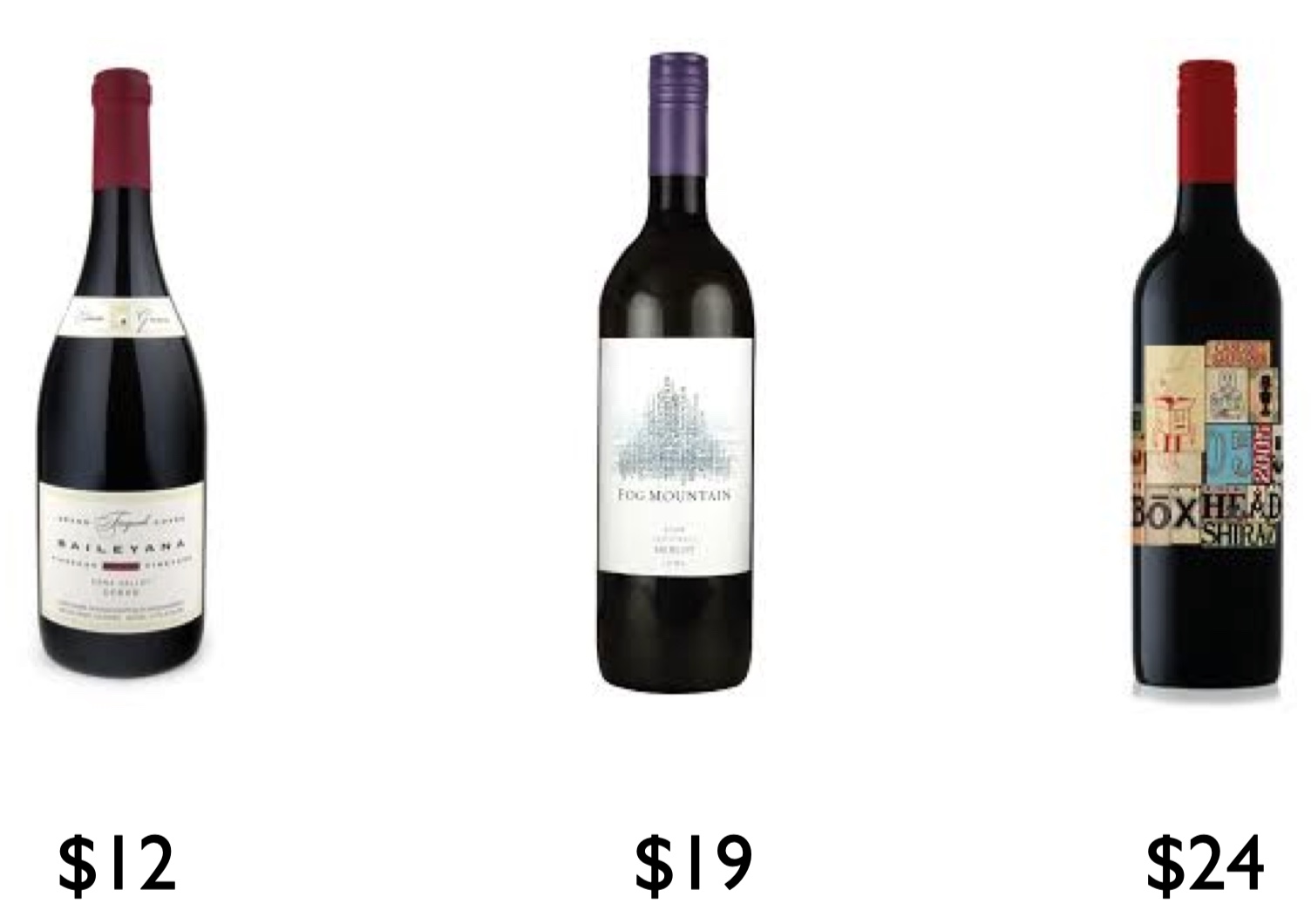
Reason-based choice
Imagine that you serve on the jury of an only-child sole-custody case following a relatively messy divorce. The facts of the case are complicated by ambiguous economic, social, and emotional considerations, and you decide to base your decision entirely on the following few observations. To which parent would you award sole custody of the child?

36% 64%
Reason-based choice
Imagine that you serve on the jury of an only-child sole-custody case following a relatively messy divorce. The facts of the case are complicated by ambiguous economic, social, and emotional considerations, and you decide to base your decision entirely on the following few observations. To which parent would you deny sole custody of the child?

45% 55%
Reason-based choice - Irrelevant reasons



Reason-based choice
Imagine that you have just taken a tough qualifying examination. It is the end of the fall semester, you feel tired and run-down, and you are not sure that you passed the exam. In case you failed you have to take the exam again in a couple of months – after the Christmas holidays. You now have the opportunity to buy a very attractive 5-day vacation package in Hawaii at an exceptionally low price. The special offer expires tomorrow, while exam grade will not be available until the following day. Would you?
- Buy the vacation package
- Not buy the vacation package
- Pay a $5 non-refundable fee in order to retain the rights to buy the vacation package at the same exceptional price the day after tomorrow – after the exam grades are posted
32% 7% 61%
Reason-based choice
Imagine that you have just taken a tough qualifying examination. It is the end of the fall semester, you feel tired and run-down, and find out that you passed the exam. You now have the opportunity to buy a very attractive 5-day vacation package in Hawaii at an exceptionally low price. The special offer expires tomorrow, while exam grade will not be available until the following day. Would you?
- Buy the vacation package
- Not buy the vacation package
- Pay a $5 non-refundable fee in order to retain the rights to buy the vacation package at the same exceptional price the day after tomorrow – after the exam grades are posted
56% 16% 30%
Reason-based choice
Imagine that you have just taken a tough qualifying examination. It is the end of the fall semester, you feel tired and run-down, and find out that you failed the exam. You now have the opportunity to buy a very attractive 5-day vacation package in Hawaii at an exceptionally low price. The special offer expires tomorrow, while exam grade will not be available until the following day. Would you?
- Buy the vacation package
- Not buy the vacation package
- Pay a $5 non-refundable fee in order to retain the rights to buy the vacation package at the same exceptional price the day after tomorrow – after the exam grades are posted
57% 12% 31%
The paradox of choice
How do consumers make satisfaction judgments?

Decisions Across Time

Predicting pleasure and pain
What would you choose?
Option 1: Submerge your hand in very cold water for 60 seconds
Option 2: Submerge your hand in very cold water for 60 seconds, and then in mildly cold water for 30 seconds

The peak-end rule
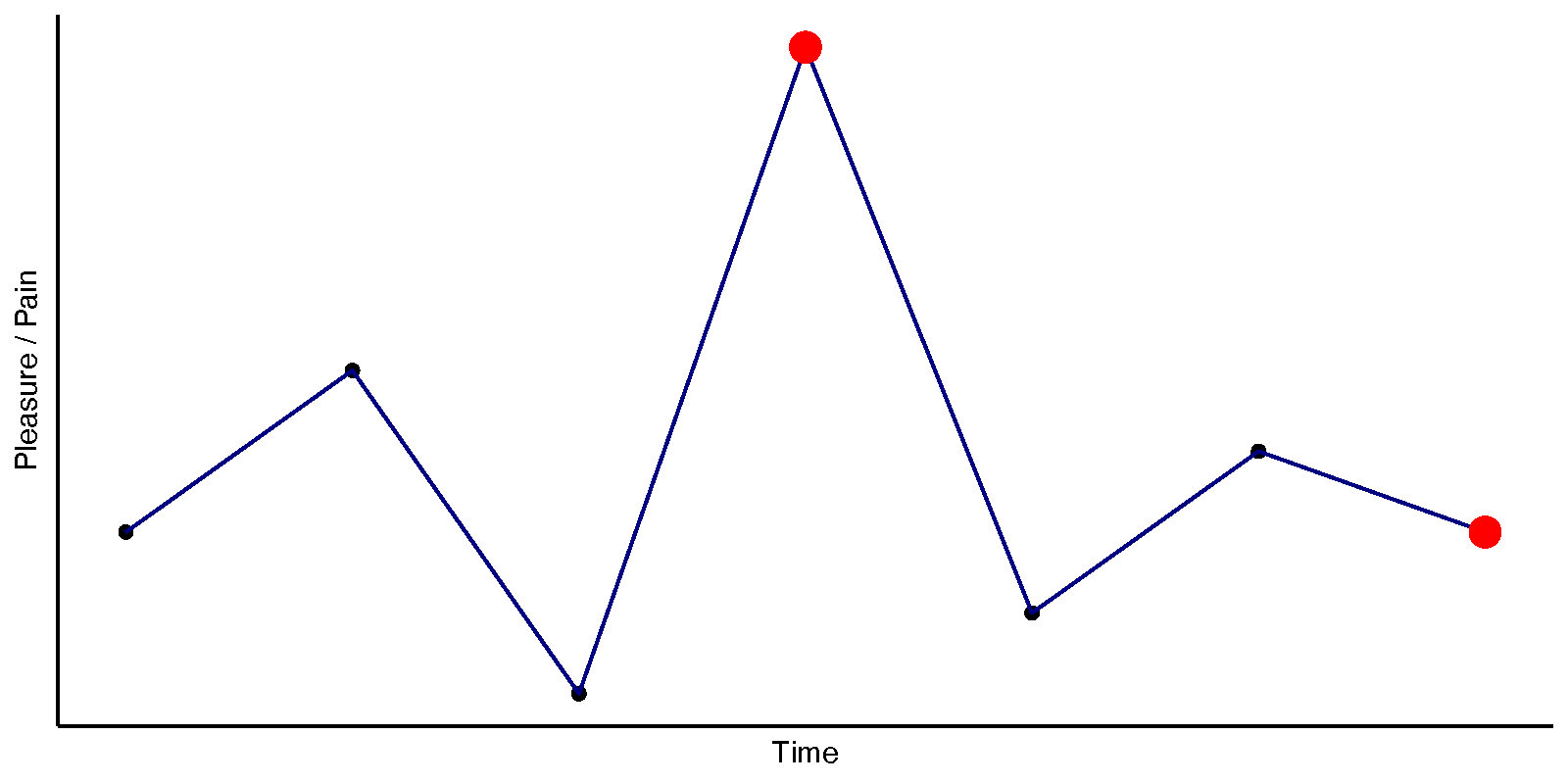
Temporal discounting
What would you rather have?
$100 today
$105 in a week
Temporal discounting of future money implies that the utility of money decreases with time.
Why we discount
Delayed outcomes can be risky outcomes
Immediate outcomes are tempting
Difficult to imagine future self
Normative theory of discounting
Money should be discounted at a constant rate over time
Preferences will be consistent over time
Exponential discount function
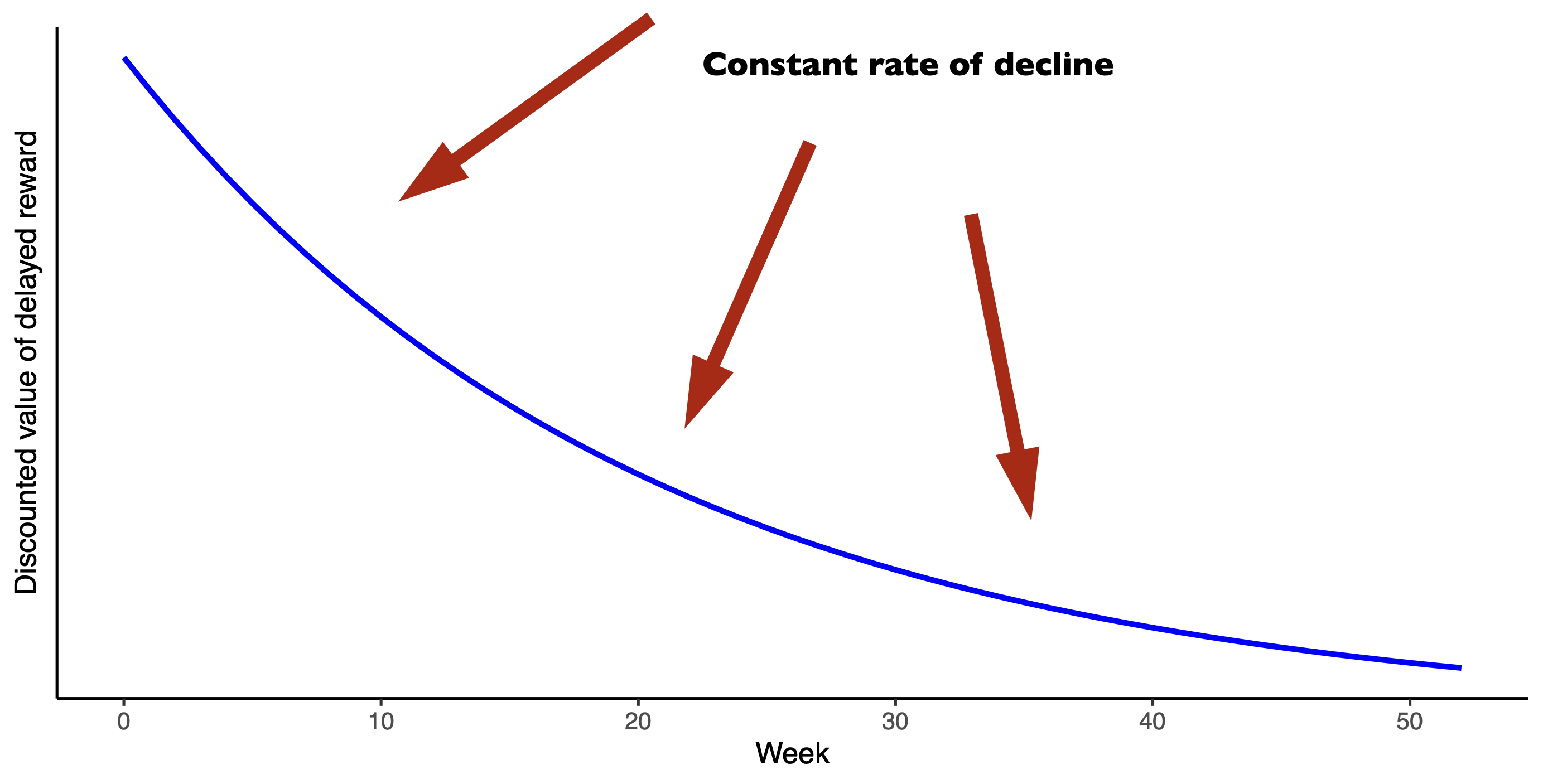
Discount functions
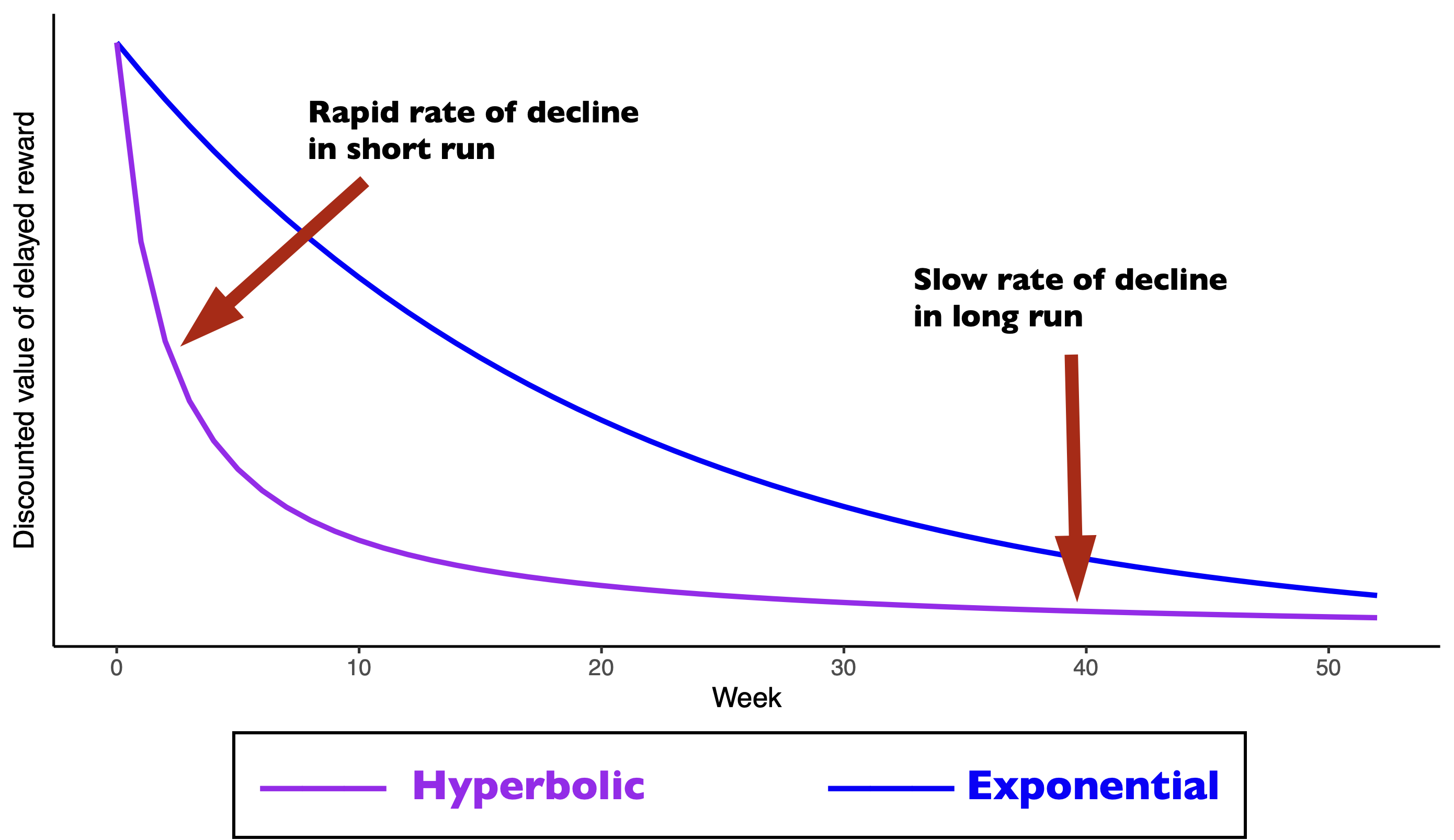
Hyperbolic discounting


Hyperbolic discounting
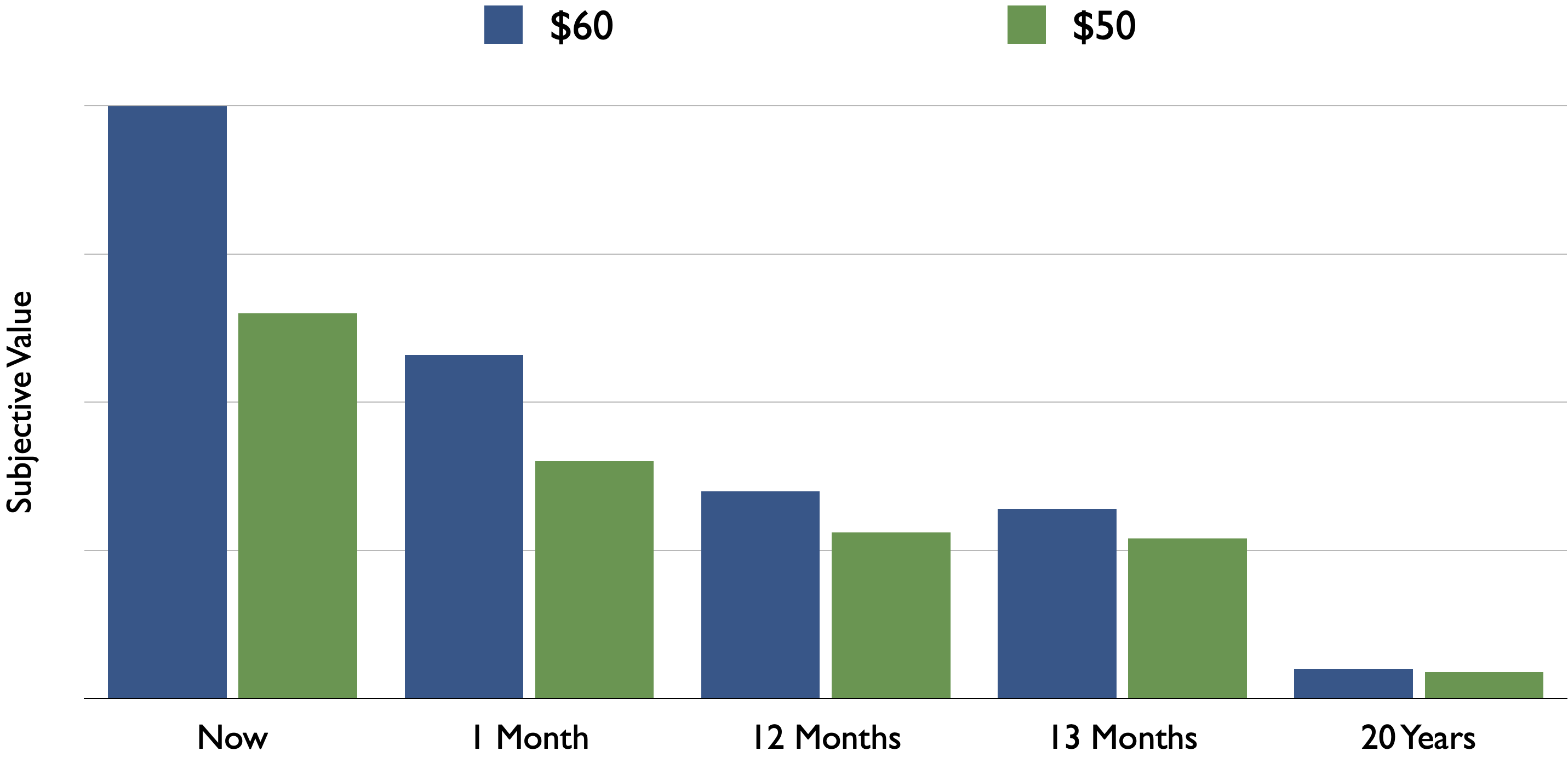
Hyperbolic discounting
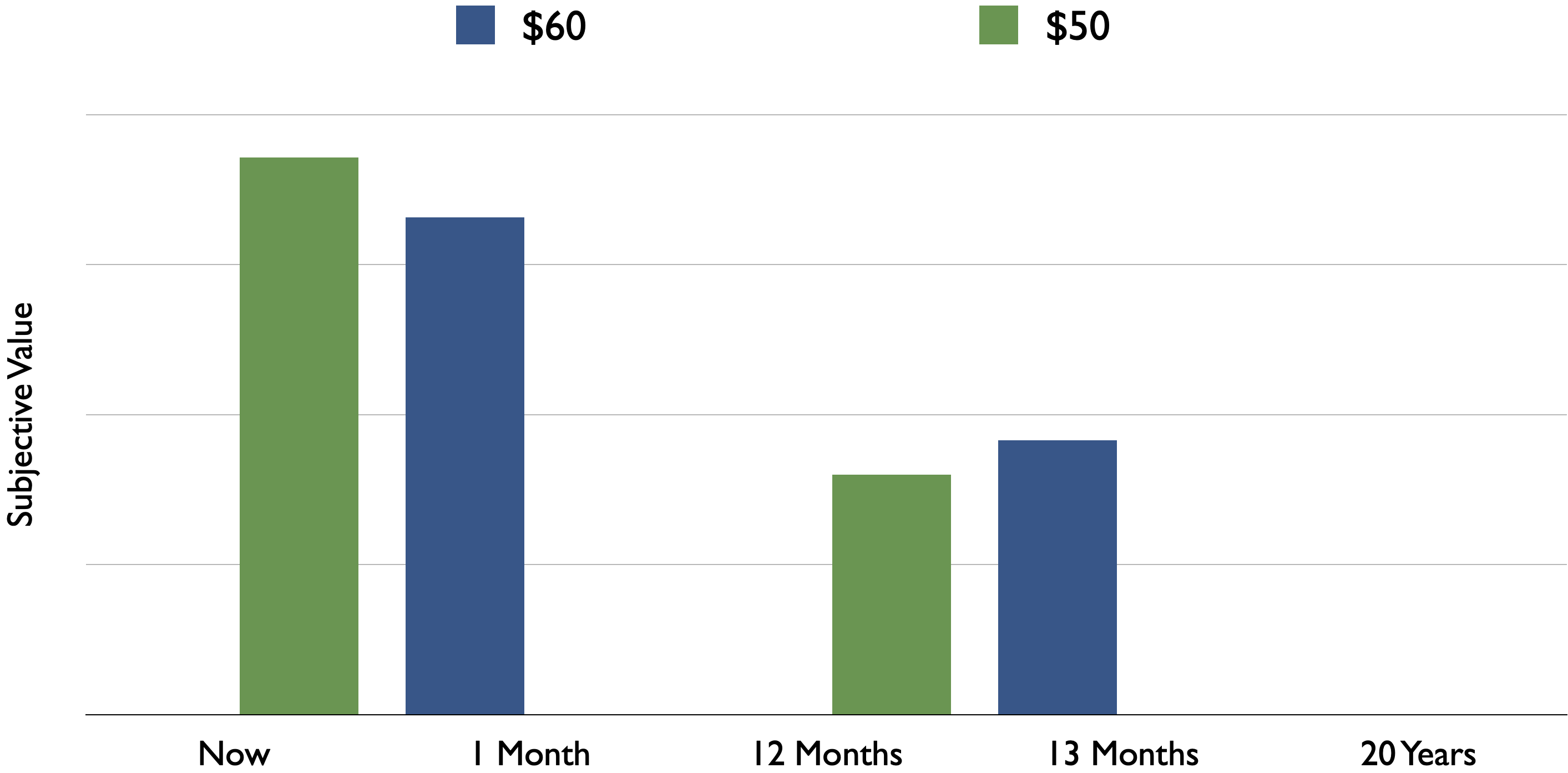
Temporal discounting
If you were deciding today, would you choose fruit or chocolate for next week


74% chose fruit
Temporal discounting
If you were deciding today, would you choose fruit or chocolate for today


70% chose chocolate
Now vs. later
What People want NOW often conflicts with long-term goals
Buy now vs. save for the future
Dessert now vs. weight loss and longevity
Party now vs. good grades later
The marshmallow study
Self-control failure
Why do we fail at self-control?
How can we avoid self-control failure?
Self-control failure
- When goals are vague
- When we’re in a bad mood - sadness, stress, etc.
- When we’re not monitoring our behaviour
- Mindless eating in front of TV
- No budget
- Under the influence
- When our capacity to exert self-control is depleted
Self-control as a limited resource
Self-control works like a muscle
- It can only be taxed to a certain point
- It can be strengthened with work/effort
Self-control is weakened by prior acts of volition
Prediction: after exerting self-control in situation A, it is more difficult to do so in situation B
Chocolate and radishes
Lab room set-up with fresh-baked chocolate chip cookies and radishes
Participants were instructed to eat either radishes or chocolate chip cookies
Participants were then asked to solve impossible puzzle


Puzzle results

Choice depletes willpower
Controlling for time spent shopping and other demographic factors, shoppers who made a lot of choices that day spent less time on the math problems and got fewer correct answers.


Pre-commitment devices
Sometimes people pre-commit to avoid temptation
- Placing alarm clock across the room
- Staying out of bars
- Individual snack packs
- ATM limits
Commitment is an old idea

